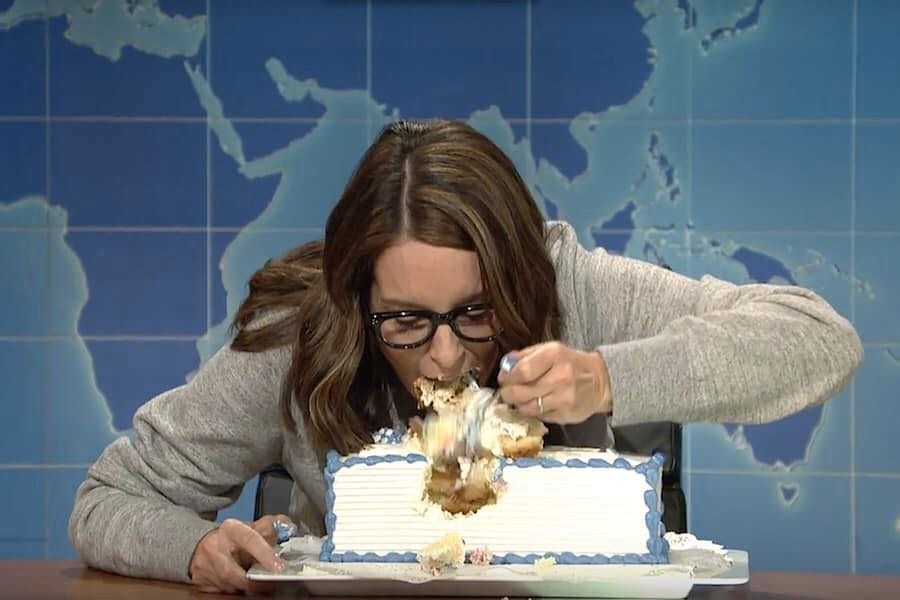52 Vocabulary Words for Playwrights
A collection of weird and unusual words for the things we do as playwrights.
This is a living document. I add to it all the time. Probably if I’d gotten an MFA in playwriting, I’d use different words for things, but I didn’t and so these are my words. If you’ve ever tried to edit your script to make it stronger, deeper, tighter, cleaner, etc., then you’ve no doubt used some of these techniques. It’s a great checklist to have handy when working through edits. Please share with your teachers, students, writing groups, and colleagues!
And now... in no particular order...
PILE-UP
that thing that happens right before the ExplosionEXPLOSION
that thing most writers call the "Climax"LAYERING
that thing when you revisit a scene and go deeperTORQUE
that thing where you add friction to a scene so it turns harder and strongerYELP
a cry of pain; a very quick sharp burst of a line uttered by a character in response to agonizing emotional pain or tormentGOLD
that thing or moment in a script that is so perfect, so right, so genuinely spot-on that, in its absence, the world would stop spinningLAVA LAMPING
that thing where you devise a little something interesting to bubble up into a scene every now and then, and maybe it's never fully explained but delightful nonetheless because not everything needs an explanation; it can just be lava or whatever you want it to beSHADOW BOXING
that thing where characters start taking jabs at each other and sometimes kinda passive-aggressively beating each other up before the actual fightCARD TIPPING
that thing when a character intentionally exposes himselfTICK TICK BOOM
(a.k.a "Ratcheting")
this is when you go back through a high-pitched scene and carefully place words or actions that palpably lurch the tension higher or tighter in a given moment, and whatever it is you added should be stealth but clockable by anyone within a three-mile radius CLOCKING
it's that moment (a skipped heartbeat kind of moment) when a character notices, with undeniable clarity, something of great significance; a solid radar strike... LINE TOSS
that line you write for a character to be delivered breezily as they pass through the scene and to them it means nothing but to the other character it is total devastationCLOAKING
that thing where you take awkward exposition and break it up in such a way that it doesn't feel like someone just listing facts -- either by turning a sentence into a question, by dividing up the lines, by stylizing in a way that sounds more casual, etc.PEPPERING
that thing when you realize something about a character and you gotta go back through the script and put little spots of that in other placesTHREADING
(a.k.a. "Weaving")
that thing where you recognize a new layer in a character or a story and you go back looking for places to pull it throughTENSIONING
that thing where you prune and remove all the noise and fluffery so the scene gains electricityDISTILLATION
the collective effort that is finding the absolute essentials of a script so that it gets stronger and more meaningfulEASY MONEY
that thing where you (sometimes anachronistically) co-opt a line or a joke from pop culture or current events because you know it will get a laughBLUE'S CLUES
that thing you put in the stage directions for an actor or a director so that even the dumbest turnip will get itSPIT-BALLING
that thing where you make shit upSPAGHETTI-WALLING
that thing you do when a scene is approaching al dente and you throw it at the wall to see if it sticks; it's also that thing when you just want to play or try something, because why notREPURPOSING
that thing when you cut something you love for the sake of the scene but find a way to use it elsewhere in different contextTEXTURIZING
that thing when you take a scene that is thin and flimsy, but otherwise a solid choice, and just mess it up a littleDECLUTTERING
that thing where you get rid of all the things you aren't absolutely in love withTENNIS
that thing where you turn a monologue into a back-and-forth with another characterWEAPONIZING
that thing where you turn one character's words or actions against them later in the play (this is pure evil, and it works best in the Fight Scene because people don't think about their words when they are in the heat of battle)FIGHT SCENE
another word for "Pile-Up" but can also occur after the Explosion; either way, this is that thing where we hear the raw truth of the characters and usually where we dead-center on the crux of the matterPULLING TAFFY
that thing where you draw something out so it takes a little longer or adds tension or mysteryLIFTING
that thing you do when a scene has gotten heavy or needs some humor, so you find a way to give the audience a breakFOCUSING
that thing when you rework a line or a section so that it draws more attention or gains clarityMUTING
that thing where you blunt the force of a moment or a sceneDENATURING
a not always intentional scenario where a character is somehow stripped of his/her/their original makeup (e.g., core behaviors, objectives, values)FALSE SAVINGS
that thing where you over-engineer a fix that adds little or zero value to the overallDEFRAGMENTING
that thing where you examine a scene for flow and energy and remove all the dirt and shit that is getting in the way so it gets tighter and cleanerREFACTORING
that thing where you have a revelation about something that kinda changes the ending of a scene or a story and you go back through and make adjustments so it fits with the new ending, or calibrate the foreshadowing and other clues so that the audience has the right amount of hints or mystery at any given momentREIMAGINING
that thing where you have an idea for something and you decide to keep the gist of a scene but rewrite it in a whole new light or context or flavorEASY WRITING
that thing when the words come so fast you don't trust them because good writing can't possibly be that easyBAD WRITING
that thing you say when someone wants to know what's wrong with a line and you come clean about it.SHITTY WRITING
a few levels down from bad writingANOTHER STORY
that section of a script you know darn well does not belong herePOWER-UP
that thing you give a character so they can do something hardHEALTH
that thing you give a character who has been emotionally or physically wounded by another character but still needs to stay alive long enough to come back and finish the sceneCHARITABLE GIVING
that thing where you donate a character's lines to another character, either out of guilt because they don't have enough lines or because it's just a nice and relatively painless thing to doEASTER EGGING
that thing when you steal a line from another one of your stories and wait around to see how many people noticeEASTER EGGNOG
same as Easter Egging except this is done quite intentionally to show continuity regarding the eternal questions that are the basis of all your writingsCORE
(a.k.a. "Core Writing")
a moment or section of the script that contains a high-ranking central question or narrative moment and therefore has seniority and privilegeFLUFF
the opposite of CoreDOG LEGGING
(a form of Tensioning)
that thing where a character asks a question and instead of getting a direct response, the other character either plays dumb or obtuse or whatever and delays the answer until another part of the conversationDEMOTING
that thing where you devalue a bit of text so it's still useful but doesn't draw as much attentionNON SEQUITUR
that thing when something random, hilarious or unexpected happens (or is said by a character) right in the middle of something else - an element of surprise, great for releasing tensionFRUIT FLYING
that thing where you create a recurring nuisance for a characterSHEET CAKING
that thing when a character is doing something hilariously self-destructive, like maybe eating a whole sheet cake, because it's easier than dealing with actual feelings
PREVIOUS ARTICLES BY AUDREY CEFALY
LEAN MORE ABOUT AUDREY
Visit my website for more about me and the work I do!
QUICK LINKS TO MY PLAYS
Audrey Cefaly's plays (Alabaster, Maytag Virgin, The Gulf, The Last Wide Open, Trouble) have garnered the Lammy Award, the Calicchio Prize, the Edgerton, and a Pulitzer nomination. Her works have been produced at Signature Theatre, Cincinnati Playhouse, Barter Theatre, Merrimack Rep, Florida Studio, Florida Rep, Gulfshore Playhouse, and countless others. Cefaly is a Dramatist Guild Foundation "Traveling Master," an Arena Stage playwright cohort, and a recipient of the Walter E. Dakin Fellowship from the Sewanee Writers Conference. She is published by Concord Theatricals.
















You could try:
2A (any)
If this isn’t how they teach it in MFA programs, they should! This isn’t just an entertaining list, it demonstrates how calculating writers are. We’re engineers, and our beautiful facades are supported by hours and hours worth of carefully poured foundation and strategically placed beams. If it was “easy writing” all the time, a lot more people would do it.